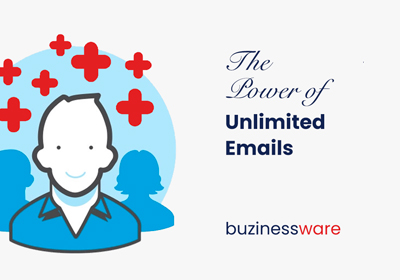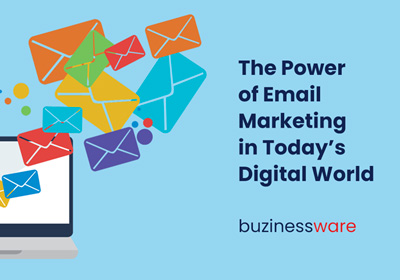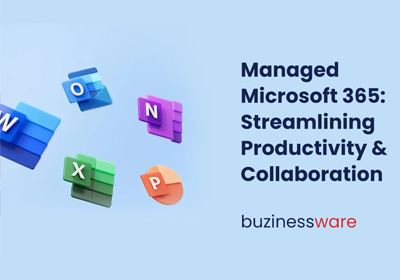The Power of Effective Email Services
In today's fast-paced world, email has become an essential communication tool for both individuals and businesses. A powerful email service can greatly enhance productivity, streamline communication, and ensure efficient correspondence. In this blog post, we will explore the many benefits and features of a powerful email service, highlighting its importance in our digital age.
Secure and Reliable Communication:
One of the key attributes of a powerful email service is its ability to provide secure and reliable communication. With advanced encryption protocols and robust security measures, these services protect sensitive information from unauthorized access. Additionally, powerful email services offer reliable infrastructure, ensuring that messages are delivered promptly and accurately, without the risk of data loss or downtime.
Efficient Organization and Management:
Efficiency is crucial when it comes to managing a busy inbox. A powerful email service offers a range of features to help users effectively organize and manage their emails. These features include customizable folders, filters, and search functions, enabling users to quickly find and sort through their messages. By categorizing emails and setting up rules, users can prioritize important messages and reduce clutter.
Enhanced Productivity:
A powerful email service goes beyond basic communication and offers various productivity-enhancing features. These features include email scheduling, reminders, and the ability to integrate with other productivity tools like calendars and task managers. By leveraging these capabilities, users can optimize their workflow, stay organized, and efficiently manage their time.
Seamless Collaboration:
Collaboration is the cornerstone of many businesses and organizations. A powerful email service facilitates seamless collaboration by enabling users to share files, documents, and calendars with colleagues and team members. With features like real-time document editing and shared inboxes, teams can work together more effectively, improving productivity and fostering better communication.
Advanced Filtering and Spam Protection:
In today's digital landscape, spam emails are a constant nuisance. A powerful email service employs advanced filtering and spam protection mechanisms to shield users from unwanted and potentially harmful messages. These services often employ machine learning algorithms that continuously learn and adapt to new spam patterns, ensuring a clean and secure inbox.
Mobile Accessibility:
In an increasingly mobile world, having access to emails on the go is essential. Powerful email services offer robust mobile applications that are compatible with various devices and operating systems. This allows users to access their emails, respond to messages, and stay connected from anywhere, anytime, ensuring uninterrupted communication and productivity.
What is Email Security?
Email security refers to the set of measures implemented to protect email communication and data from unauthorized access, interception, and manipulation. With the increasing dependence on email for both personal and professional purposes, ensuring the security of this mode of communication has become crucial. This document will explore the importance of email security, common threats and vulnerabilities, as well as best practices to mitigate risks.
The significance of email security lies in safeguarding sensitive information transmitted through emails. Emails often contain personal, financial, or confidential data, making them attractive targets for cybercriminals. Without proper protection, these emails can be intercepted, allowing attackers to exploit the information for malicious purposes.
One of the most common threats to email security is phishing. Phishing attempts involve fraudulent emails that trick recipients into revealing sensitive information, such as login credentials or financial details. These deceptive emails often appear to be from trusted sources, making it vital for recipients to exercise caution and verify the authenticity of the sender before responding or clicking on any links.
Another prevalent threat is malware, which can be delivered through email attachments or embedded links. Once opened, these malicious files can infect the recipient's device and compromise the security of their entire system. To mitigate this risk, it is essential to have robust antivirus software in place and to regularly update it to protect against the latest threats.
Email spoofing is another technique used by attackers to deceive recipients. Spoofed emails appear to be from a legitimate sender, but they are actually sent from a different source. This can lead to various forms of fraud, including identity theft and financial scams. Implementing email authentication mechanisms, such as Sender Policy Framework (SPF), DomainKeys Identified Mail (DKIM), and Domain-based Message Authentication, Reporting, and Conformance (DMARC), can help prevent email spoofing and enhance email security.
Encryption is a crucial aspect of email security. By encrypting email messages, the content becomes unreadable to anyone who does not possess the decryption key. This ensures that even if intercepted, the information remains protected. Transport Layer Security (TLS) and Pretty Good Privacy (PGP) are commonly used encryption protocols for securing email communications.
In addition to these threats, email security also encompasses measures to prevent unauthorized access to email accounts. Strong and unique passwords, along with two-factor authentication, can significantly enhance the security of email accounts and prevent unauthorized access.
To maintain email security, it is essential to regularly update email clients, operating systems, and security software. These updates often include patches and bug fixes that address vulnerabilities in the system, reducing the risk of exploitation by attackers.
In conclusion, email security plays a crucial role in protecting sensitive information transmitted through emails. By understanding and implementing best practices, such as being vigilant of phishing attempts, using email authentication mechanisms, encrypting messages, and keeping software up to date, individuals and organizations can minimize the risk of falling victim to email-based threats.
Choosing a email service provider in UAE
When choosing an email service provider in the United Arab Emirates (UAE), you should consider the specific needs and requirements of your situation. Here are some factors to take into account:
- Local Regulations and Compliance: The UAE has specific regulations and laws regarding data storage, privacy, and content censorship. Make sure the email service provider you choose complies with these regulations to avoid any legal issues.
- Security and Privacy: Ensure that the email service provider offers strong security measures, including encryption, to protect your data. Look for providers with a good track record of data privacy and protection.
- Reliability and Uptime: Check the provider's uptime guarantees and reliability. A reliable service is crucial to ensure that your emails are accessible when needed.
- User Interface and Features: Evaluate the user interface and features offered by the email service. User-friendly interfaces and essential features like spam filtering, search capabilities, and integration with other tools can enhance your email experience.
- Custom Domains: If you're a business, having the option to use your own custom domain for email addresses can provide a more professional appearance.
- Mobile Compatibility: Check if the email service provider offers reliable and user-friendly mobile apps or web interfaces for accessing emails on the go.
- Customer Support: Consider the availability and quality of customer support. Responsive and helpful customer support can be important if you encounter any issues.
- Data Backup and Recovery: Find out if the provider offers regular data backups and a clear process for data recovery in case of accidental loss.
- Cost and Pricing: Compare pricing plans and packages to ensure they fit within your budget. Be aware of any hidden fees.
- Integration with Other Tools: If you use other software tools or platforms, make sure the email service provider integrates well with them.
- Reviews and Reputation: Look for reviews and feedback from other users in the UAE to get an idea of the provider's reputation and performance in the region.
Considering these factors, you could explore email service providers that have a presence in the UAE or the broader Middle East region. Some global providers may offer data centers or services specifically tailored to the UAE market.
Always conduct thorough research, read user reviews, and consider your specific needs before making a decision. Additionally, consulting with legal experts familiar with UAE regulations can help ensure that your chosen email service provider complies with local laws.




